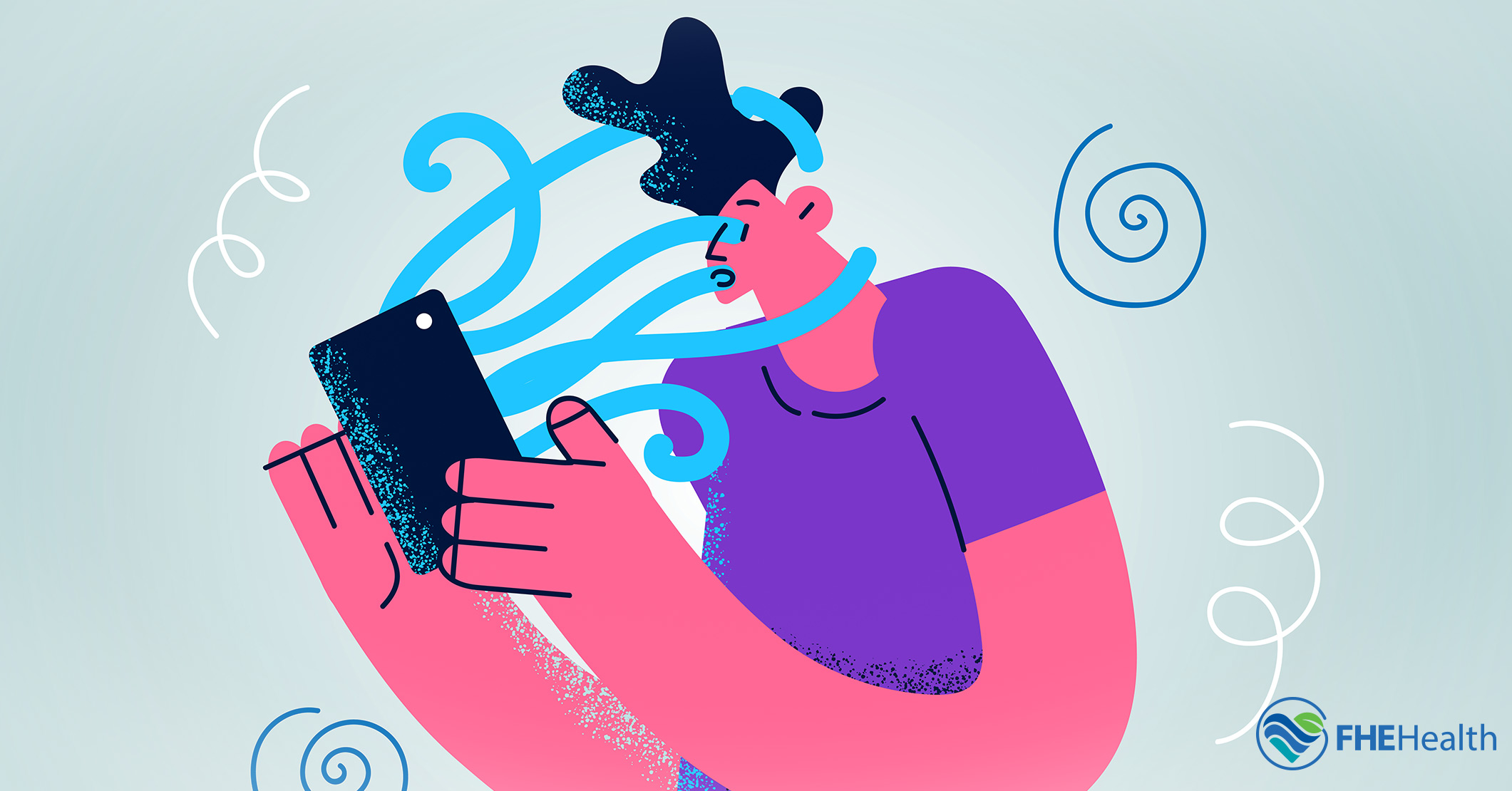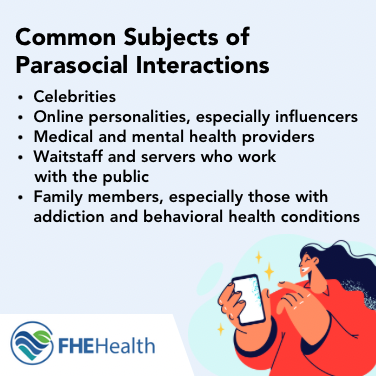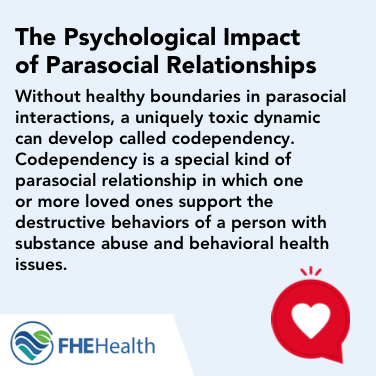
Most of us have a good grasp of what personal relationships are like. You give and take, and so does the other person in your life. Spouses, children, family and friends are all examples of regular, two-sided relationships that form the fabric of people’s lives. But there’s another kind of relationship people can have, which first started getting noticed after movies and TV made one-sided, or parasocial, relationships possible.
The definition of a parasocial relationship is a one-way interaction, which is almost unique to the modern world. In small doses, it can be harmless, but when these relationships go too far, you could be looking at some unhealthy personal outcomes.
Parasocial Relationships Definition
Briefly, a parasocial relationship is one in which a person invests time, energy and other resources into another party, but the object of this attention doesn’t reciprocate. The relationship between an audience and a performer is a classic example of this. The audience has invested time and energy into following the performer, whose name they know and whose personal details can be an object of intense interest to the crowd. The performer, on the other hand, can’t possibly know the details of all the people in the audience or get personally invested in many strangers.
These dynamics of a parasocial relationship also occur on a smaller scale. If you’ve ever had a crush on somebody who didn’t know you existed or who knew you but never realized how you felt, you were in a parasocial relationship. When this happens in middle school, it’s generally harmless and normal. The toxic extreme of this, however, can turn into obsession, stalking and even violence.
Exploring the Dynamics of the Parasocial Relationship
 Away from the extremes, living in unproductive parasocial relationships can also be personally destructive. There’s real anguish in unrequited love, for example, as well as in aspirational relationships with social media influencers and other modern stars. If you’re spending emotional or mental bandwidth thinking about people who don’t know of your existence or investing resources like cash in supporting a person who can’t know anything about you, you could be engaged in a wasteful, unproductive relationship trap—a parasocial relationship.
Away from the extremes, living in unproductive parasocial relationships can also be personally destructive. There’s real anguish in unrequited love, for example, as well as in aspirational relationships with social media influencers and other modern stars. If you’re spending emotional or mental bandwidth thinking about people who don’t know of your existence or investing resources like cash in supporting a person who can’t know anything about you, you could be engaged in a wasteful, unproductive relationship trap—a parasocial relationship.
Common subjects of parasocial interactions include:
- Celebrities
- Online personalities, especially influencers (and most especially after the isolation caused by COVID-19 lockdowns)
- Medical and mental health providers
- Family members, especially those with addiction and behavioral health conditions
- Waitstaff and servers who work with the public
The most common parasocial relationship definition embraces more than just the celebrity-fan interaction. People can unwittingly find themselves in one-sided relationships with people they know personally. You might, for instance, be in an uneven marriage, where one party spends inordinate amounts of time managing the other party’s addiction issues or the consequences of their dysfunctional behavior. A wife who calls her husband’s workplace to provide excuses when he can’t make it in because of a substance abuse issue is a classic example of this parasocial dynamic in an intimate relationship.
Are Children a Parasocial Relationship?
This isn’t to be confused with the very heavily slanted relationship parents have with their children. On the surface, this can look like a parasocial relationship. Parents give children shelter, food, medical care and money, while children give parents … kids. As unequal as this seems on the surface, children do generally give their parents what they can in the form of love, respect and obedience, which is about as much as small children are able to contribute. While there’s an asymmetry in the dollar value or time commitment the parties put into the parent-child relationship, both are emotionally equally invested, which moves parenthood out of the realm of what would otherwise be a parasocial relationship.
The Psychological Impact Parasocial Relationships Can Have
 The psychological impact of parasocial relationships varies enormously, depending on the people involved and the level of one-sided commitment. Fans who enjoy a certain actor’s performance are in a fairly normal and harmless relationship, provided they understand they aren’t on the star’s radar and don’t take it too seriously.
The psychological impact of parasocial relationships varies enormously, depending on the people involved and the level of one-sided commitment. Fans who enjoy a certain actor’s performance are in a fairly normal and harmless relationship, provided they understand they aren’t on the star’s radar and don’t take it too seriously.
In fact, a 2017 study found that these kinds of casual parasocial relationships can actually have a net-positive relationship for young people. At a higher level, media and the parasocial connections that go with it can contribute to feelings of isolation and loneliness because a person caught in this dynamic can pour more and more of their attention into following a celebrity or media personality, always without getting a return from the object of their affection.
The Impact of Parasocial Dynamics on Personal Relationships
In the personal sphere, asymmetrical and parasocial relationships can be more destructive. Without healthy boundaries in parasocial interactions, a uniquely toxic dynamic can develop called co-dependency. Codependency is a special kind of parasocial relationship in which one or more loved ones support the destructive behaviors of a person with substance abuse and behavioral health issues.
A parent who supports their adult child with money and a place to stay, for example, enables the child’s addiction in a way that prevents the child from reaching rock bottom and feeling the need to start recovery. This often allows an addiction to progress and inflicts serious psychological stress on entire families until the cycle is broken.
Navigating Healthy Boundaries in Parasocial Connections
Maintaining healthy boundaries and understanding parasocial interactions is the key to keeping these relationships in their place. Setting up boundaries can be a challenge for people who have behavioral health issues or a history of trauma, abuse or neglect. If you find yourself slipping into dramatically one-sided relationships, or if your personal interactions feel like they’re bad for you, you might need help finding and setting healthy boundaries.
Many 12-step groups, such as Co-Dependents Anonymous, can help you spot unhealthy boundaries and identify the point in your own life where parasocial relationships become potentially harmful to your mental and emotional health.
Take the First Step Toward Healthier Relationships Today
Healthy relationships are built on mutual respect, reciprocity, and genuine connection. By understanding the dynamics of parasocial relationships, you can cultivate healthier and more fulfilling connections in your own life.
Taking care of yourself should be a priority, and sometimes, you need help to identify the harmful relationships you’ve found yourself slipping into. You can also get help for the feelings of isolation or depression that often go along with dysfunctional parasocial relationships. Contact FHE Health today to speak with a caring and understanding professional and get the ball rolling on restoring a healthy balance to the relationships in your life.






